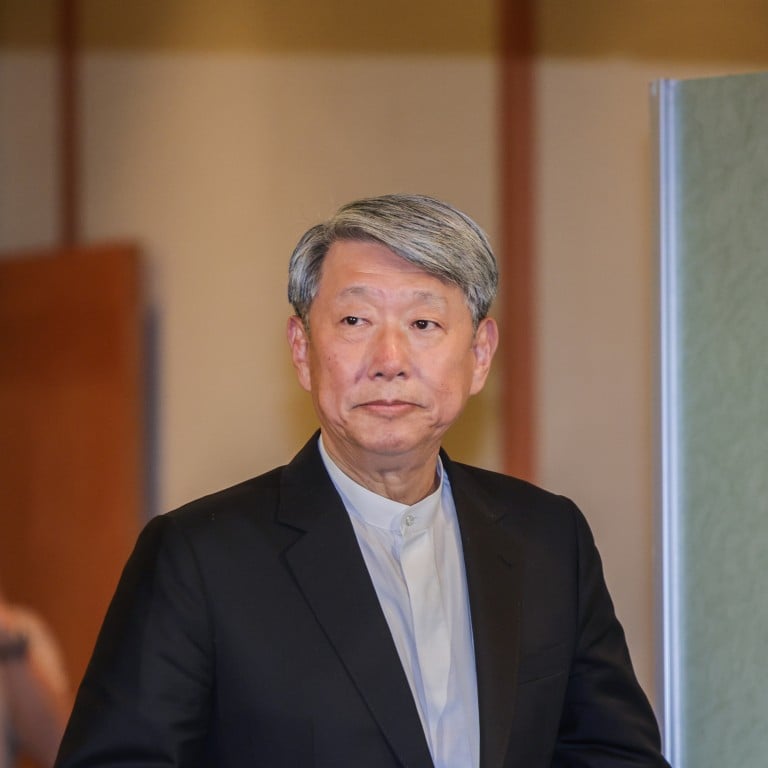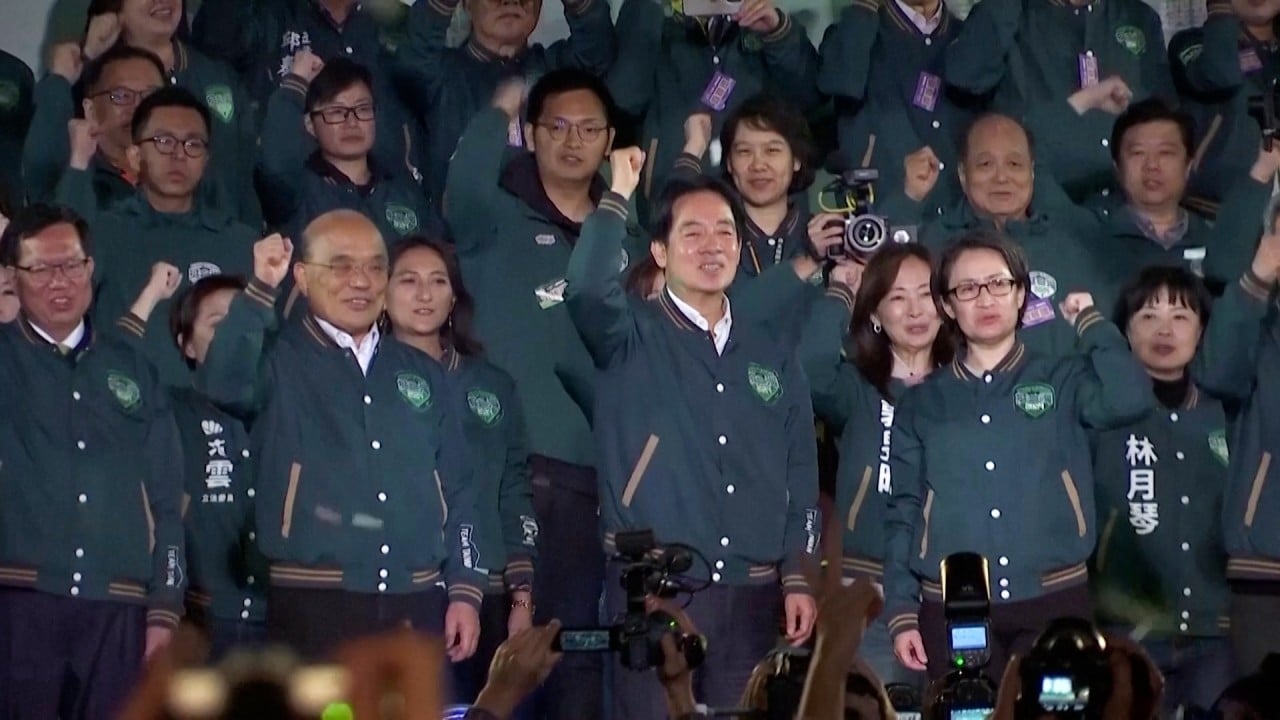
Taiwan semiconductor veteran JW Kuo named as economy minister as new government signals plans to reduce reliance on mainland China will continue
- Kuo, the co-founder of Topco Scientific, has extensive experience of global supply chains and has vowed to use his contacts to help the economy
- Next government has signalled it will continue current policy of diversifying trade links and developing core industries, including cybersecurity and defence
“We have great anticipation [Kuo] will leverage his profound knowledge and vast network in the industry to continue promoting the six core strategic industries in Taiwan,” premier-designate Cho Jung-tai told a news conference in Taipei.
The six core industries – information and digital technology, cybersecurity, medical technology, green and renewable energy, and national defence – were identified as such by the outgoing administration of President Tsai Ing-wen, and Cho’s comments indicate the next government will continue those policies.
Ma urges Taiwan’s next president to respond ‘pragmatically’ to Xi’s ‘olive branch’
Cho, a former chairman of the independence-leaning Democratic Progressive Party, said Kuo would also be tasked to ensure a stable power supply, which he said was the public’s most pressing concern.
Taiwan has experienced power outages, sometimes island-wide, since 2017, leading to public criticism of the government’s inability to maintain a stable power supply, especially for the island’s key semiconductor industry.
In a statement issued through Topco Scientific, Kuo said he would use his 40 or so years’ experience in business and his vast network of connections to promote the sustainable development of the island’s economy.
Kuo – who was once chosen as one of Taiwan’s top 100 chief executives and has accumulated significant personal net worth – said he would resign from all his posts at Topco.
Analysts said while the appointment of a business leader could help boost the island’s economy, it would still be difficult to cut its economic reliance on the mainland.
Tsai Cheng-yuan, a former legislator for Kuomintang, Taiwan’s main opposition party, welcomed Kuo as a “good choice” and said he had much more business experience than the outgoing economics minister Wang Mei-hua, a lawyer by training.
Huang Huei-hua, a senior researcher with the Taiwan International Strategic Study Society think tank, said Wang was not a popular minister and had been given a poor performance rating in several opinion polls.
“However, when it comes to cross-strait policy, Kuo, like Wang, is expected to follow the Tsai government’s policy to reduce Taiwan’s high economic reliance on the mainland,” she said.
Huang said Lai had already made public his intention to play safe by following Tsai’s policy after the inauguration. “This means Tsai’s policy of diversifying Taiwan’s trade in Southeast Asia and other parts of the world in a bid to cut economic reliance on the mainland will continue,” she said.
Taiwan earthquake response poses early test for president-elect’s leadership
“But the task to cut such reliance will remain difficult, given that Taiwan still needs to rely on the mainland market to aid its economic growth regardless of how hard Tsai has tried.”
Currently, Taiwan’s exports to the mainland and Hong Kong still account for close to 40 per cent of its total exports.
Huang said it would be unlikely that Taiwan can decouple economically from the mainland, given the huge market there. “No country in the world could fully decouple its economic links with China,” she added.
On Tuesday, Cho also named other members of his economic team, including Paul Liu, a former IBM manager and ex-chairman of PwC Taiwan, who will become the head of the National Development Council.
Peng Jin-lung, associate dean of National Chengchi University’s College of Commerce, was appointed head of the Financial Supervisory Commission, and Huang Yen-nun, a research fellow with Academia Sinica’s Research Centre for Information Technology Innovation will be the new digital affairs minister.


